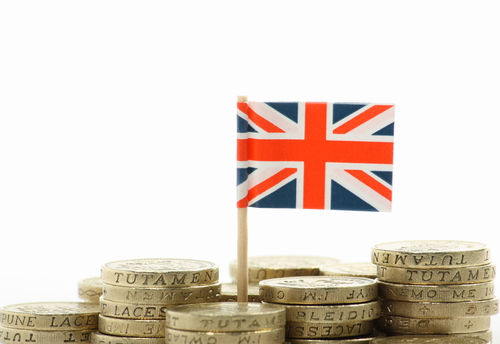Experienced Investor
CBI estimates Q1 growth of 0.7

A significant rise in the UK service sector last month helped contribute to overall GDP growth of 0.7 per cent, according to a report issued today by the Confederation of British Industry (CBI).
The CBI announcement is the latest in a run of positive news for the UK economy; last week, the Office for National Statistics revealed that the UK economy grew by 2.8 per cent last year, exceeding analysts’ predictions.
Reaction to the news has been positive. “With incoming new business rising to a six-month high in March, outstanding business rising and business expectations at a 10-month high despite uncertainty over the looming general election, prospects look bright for the services sector in the near term at least,” said Howard Archer of IHS Global Insight. “This was also reflected in robust employment growth in the sector.”
Samuel Tombs of Capital Economics said the news “provides further reassurance that the economic recovery is still on a fast-track, despite the uncertainty created by the upcoming general election.”
Also contained in the report was a survey of the attitudes and expectations of UK businesses for the year ahead, which pointed to near-universal confidence that the UK economy will grow over the next quarter too.
“Our surveys show it’s been a solid start to the year with the prospect of stronger growth to come,” says Katja Hall, the CBI deputy director general. “The benefits of lower oil prices should be increasingly felt; with cheaper petrol boosting households’ incomes and spending power, and cutting cost for many businesses.”
However, the apparently upbeat tone of the CBI report’s headline figures ignores shortcomings in other areas, including a notable decline in manufacturing export orders, as the sector suffers from the strength of sterling. Professional services performance was also stagnant, the figures suggest. Hall recognises that there are potential problems ahead for the UK, saying “the main risk to the UK economy comes from the Eurozone, with continuing wrangling over Greece’s bailout package stoking uncertainty.”
This Thursday, the Bank of England’s Monetary Policy Committee will make its final decision on UK interest rates before the General Election take place. Spokespeople for the BoE, including Governor Mark Carney and his Deputy Ben Broadbent, have repeatedly stated that the rate will remain at its historic lowpoint of 0.5 per cent, and any subsequent move will be upward.
BoE chief economist Andy Haldane broke ranks with the BoE’s official public position a fortnight ago to argue that a further rate cut – to zero perhaps – may be inescapable, lead to a temporary bout of anxiety on the part of analysts. However, their nerves appear to have settled since; Paul Hollingsworth of Capital Economics states that the next announcement “looks set to be another uneventful one.”
“With inflation set to turn negative soon and hover around zero for the most of the rest of this year, it seems as if the MPC will sit on their hands until they are confident that deflation is not becoming ingrained,” Hollingsworth believes.